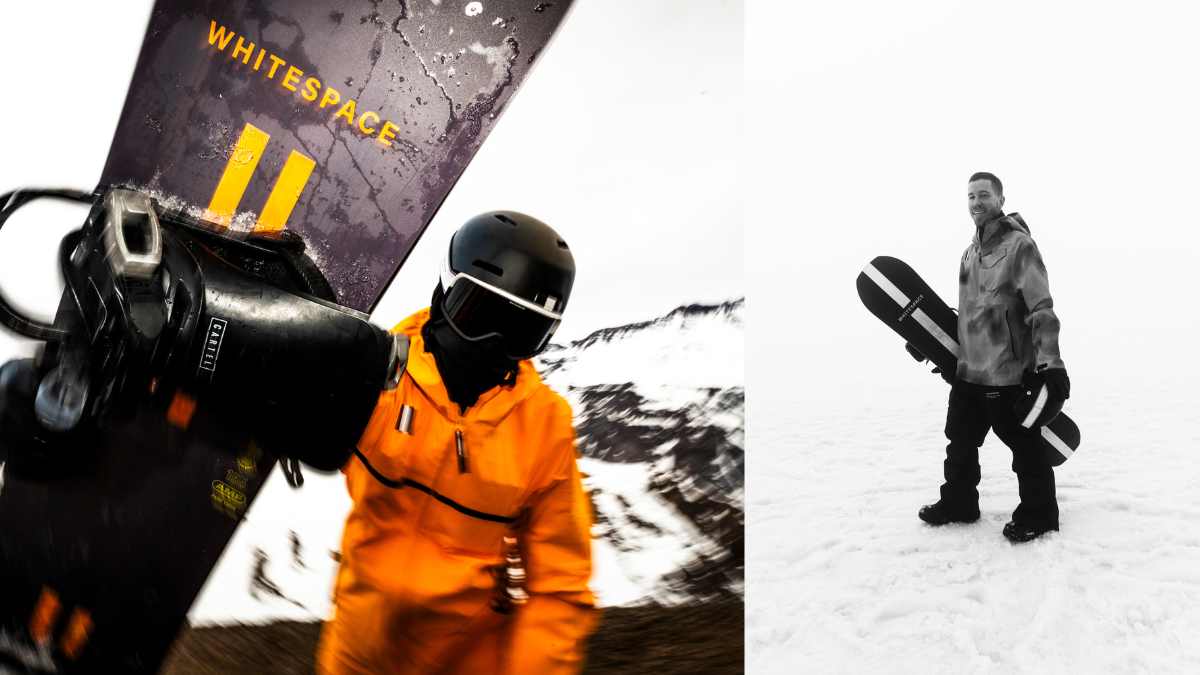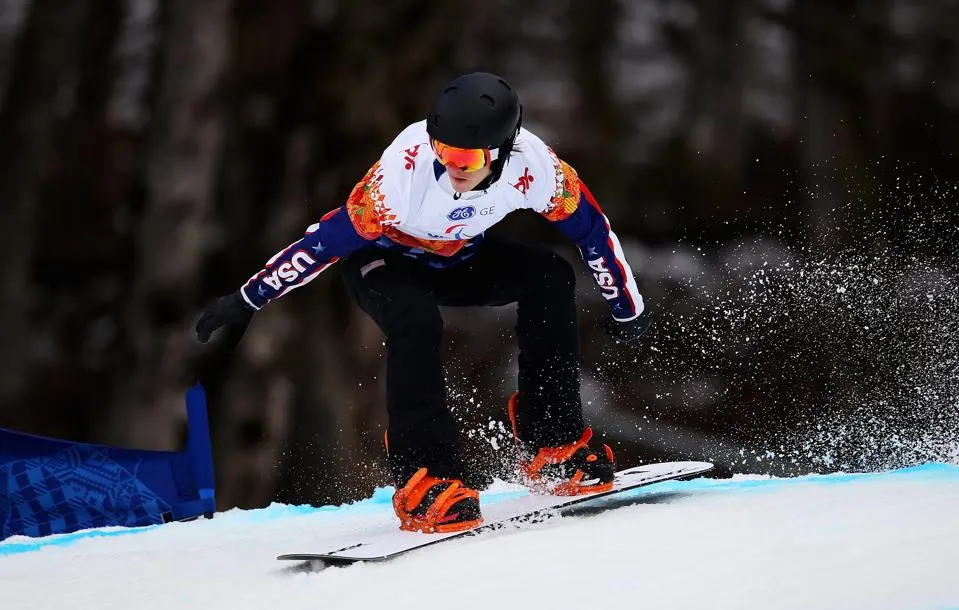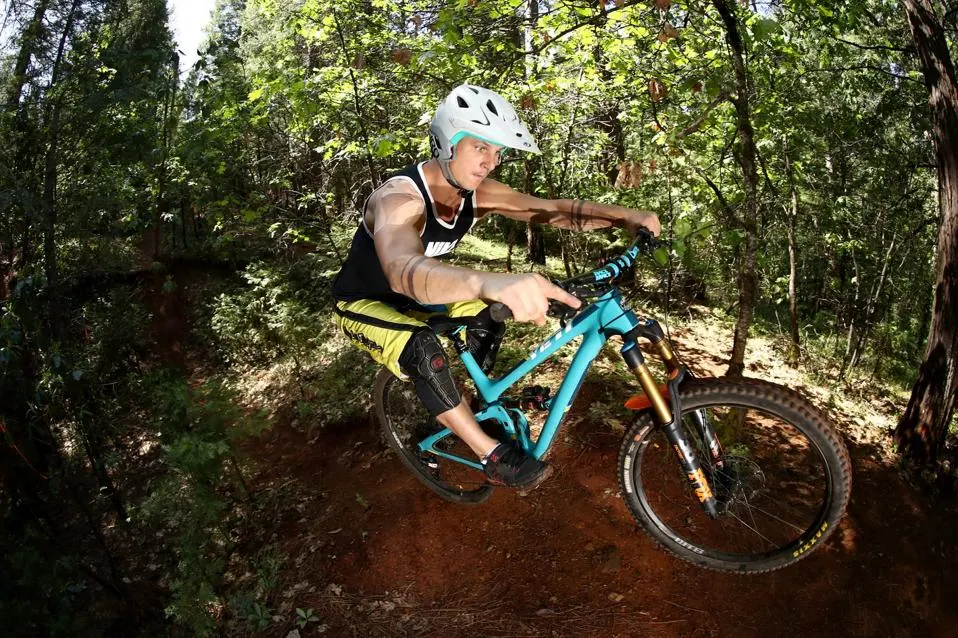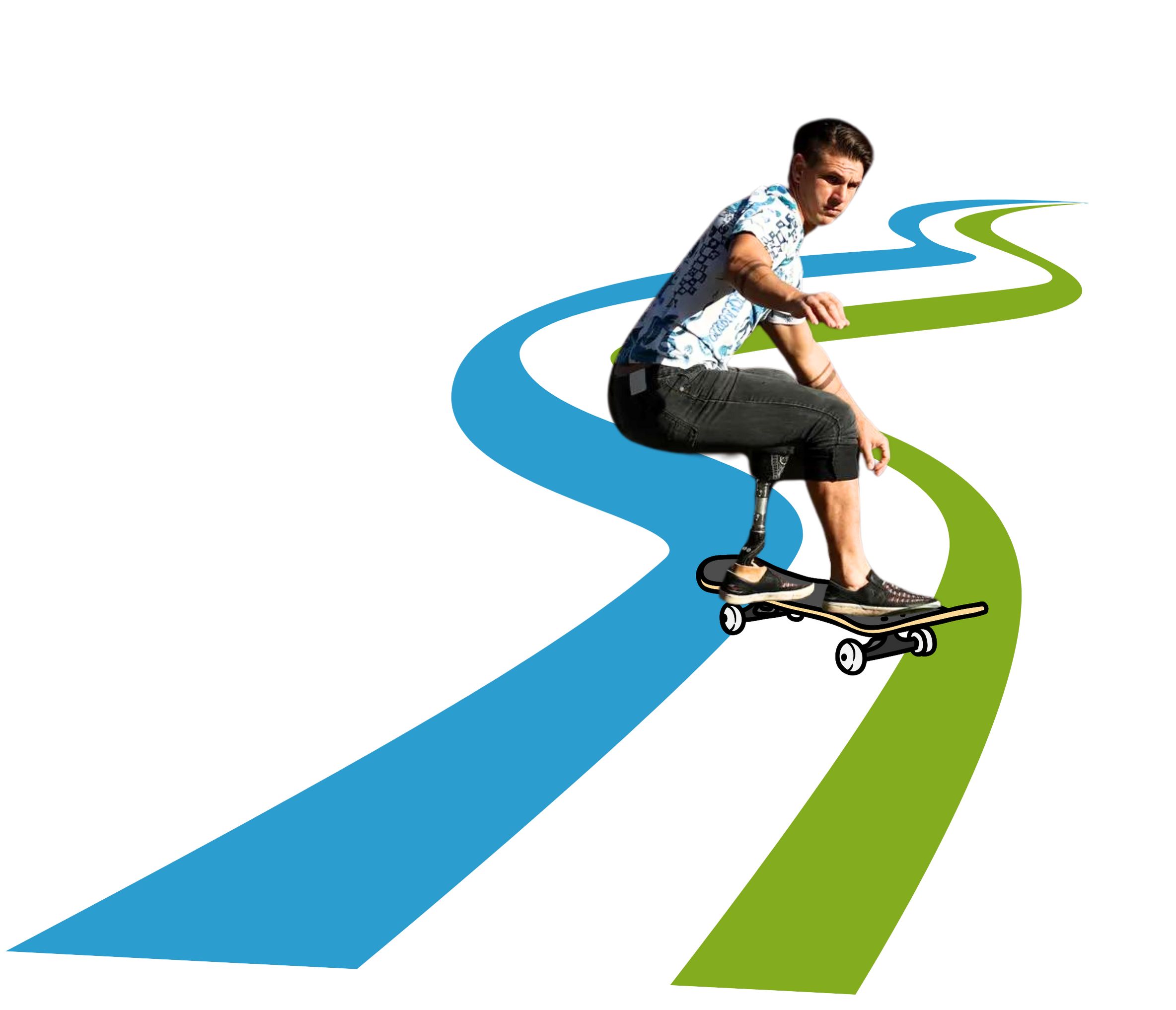
Adaptive Action Sports Announces Partnership with WHITESPACE for the 2024/25 Snowboard Season
Adaptive Action Sports (AAS) announce a new partnership with WHITESPACE for the 2024/25 snow season.
By Michelle Bruton
Dew Tour marks many firsts in 2021. It’s the first time the event has been held in Des Moines, Iowa—home to the new Lauridsen Skatepark, now the largest skatepark in the United States.
It’s not the first time Dew Tour has served as a sanctioned qualifying event for skateboarding ahead of its debut in the Tokyo Olympics—the same was true in 2019, before the qualification period was extended a year to account for Covid-19—but it’s the first time hopefuls can definitively clinch an Olympic berth.
And for the first time since its debut in 2005, Summer Dew Tour features adaptive skateboarding competitions—in women’s and men’s street and men’s park. Now an established part of Winter Dew Tour, the goal is that moving forward, the summer event will make adaptive competition permanent.
“Incorporating adaptive skateboarding has been part of our plan for quite some time. With the support of our mobility partner Toyota, we were able to make it happen this year,” Dew Tour vice president and general manager Courtney Gresik told me. “Our goal is to keep it part of our event and help raise the awareness of adaptive skateboarding and its incredible athletes.”
On May 17, Toyota, already a sponsor of Team USA Olympians and Paralympians—including two-time Paralympic snowboard medalist Evan Strong—announced a program in partnership with the United States Olympic & Paralympic Committee (USOPC) and the U.S. Olympic & Paralympic Foundation to support U.S. Paralympic athletes.
Through the program, which utilizes the newly created Toyota U.S. Paralympic Fund, Toyota will provide eligible Team USA Paralympic athletes currently training and in contention for the Tokyo and Beijing Games a one-time $3,000 stipend. Opt-in sponsorship opportunities will also be made to athletes named to the U.S. Paralympic Team for both the Tokyo and Beijing Games.
“Toyota believes in the power of sport and its ability to connect people with diverse backgrounds as they compete with mutual respect towards a common goal,” said Dedra DeLilli, group manager, Sponsorship, Integration, and Auto Shows, Toyota Marketing, Toyota Motor North America. “There is no better place than the Paralympic Games for Toyota to reinforce our fervent belief that everyone is entitled to the freedom of movement in a more inclusive society.”
Strong, who won gold in snowboardcross at the Sochi 2014 Paralympic Winter Games and silver in banked slalom at the PyeongChang 2018 Paralympic Games, is planning to go for snowboard gold again at Beijing 2022.

However, he has also been working with a coach who trains able-bodied snowboarders and competing in able-bodied snowboard racing, and his eventual goal is to compete against able-bodied riders in Olympic snowboardcross and banked slalom.
But climbing the world ranks of Olympic and Paralympic snowboarding isn’t enough to satisfy Strong’ s competitive drive. Sunday’s Dew Tour adaptive skateboarding competition is an important step toward Strong realizing a dream he’s had since childhood.
Before being hit by a drunk driver while riding his motorcycle at age 17, which required the amputation of his left leg below the knee, the Maui native was a sponsored skateboarder on the rise.
After the accident, Strong didn’t think he’d pick up a skateboard again, let alone compete at any level. It took some encouragement from Jon Comer, the first professional skateboarder with a prosthetic limb, to get Strong to pick up his board again.
“Jon Comer really set the example. He called me when I was in the hospital after my leg was amputated,” Strong said. “He asked if I thought I wanted to skate again, and I said, ‘Yeah.’ He said, ‘Well, what do you want to do?’ I said, ‘If I could ever just skate a mini ramp again, I’d be the happiest,’” Strong recalled.
“Jon said, ‘Oh, you’ll definitely get that. What else?’ And I was like, ‘Oh, yeah, I’ll totally be able to skate a mini ramp.’ I was one week in, still in the ICU, and a professional skater just calls me up and basically gave me permission to rip. He was truly an athlete before his time.”
Comer died in December 2019; Strong cites him as one of the most influential figures in his own competitive skateboarding career, along with Amy Purdy and Daniel Gale, founders of the nonprofit Adaptive Action Sports.
Strong met Gale just two years after his accident, when he was 20. Purdy and Gale were instrumental in getting adaptive events added to the X Games and Winter Dew Tour programs. Now, in 2021, adaptive skateboarding finally finds a home on the Dew Tour.
Through his own work with Adaptive Action Sports, Strong’s mission is to show other adaptive athletes what Comer, Purdy and Gale were able to show him—that sports, and competitive sports, remain on the table after their accidents.
“I’ve been super passionate about their mission statement because people like that picked me up after my amputation,” Strong said. “After I was able to stand back up, after having that near-death experience, to be able to meet somebody who’s been there, because of Daniel and Amy Purdy and Adaptive Action Sports I’ve been able to connect with so many of these individuals: young, old, boy, girl, veterans.
“I’ve been able to see the magic of getting out with your buddies and having a good time playing outside and see people come out of this shell-shocked place after their accident and come to life.”
The men’s park adaptive skateboarding field is the deepest of the three Dew Tour events, at 13; the women’s street field includes six skaters and the men’s street final features 12.
The men’s park event features other famous adaptive skateboarders Felipe Nunes of Brazil, who is a double amputee, and Aaron “Wheelz” Fotheringham of the U.S., whose wheelchair tricks frequently go viral.
Sunday, adaptive skateboarding debuts at Dew Tour. In the Los Angeles 2028 Games, it could be an Olympic discipline. If he’s still actively competing at that time—and given his intense training and healthy lifestyle, Strong thinks he’s in better shape now at 34 than he has been in the past—Strong is confident that he could medal in that event. And that’s not all he has in his sights.
An avid surfer growing up in Maui, Strong has also competed in multiple adaptive surf competitions. As surfing makes its Olympic debut in the 2021 Tokyo Games alongside skateboarding, adaptive surfing could also soon be on the program—perhaps by the L.A. 2028 Paralympics.
It wouldn’t be a stretch to imagine the naturally gifted athlete could compete in three different Paralympic sports by the time his competitive career has concluded.

For now, however, Strong is focused on the opportunity in front of him—the chance to once again compete in skateboarding medal events.
“The field is growing; I think this might be one of the biggest adaptive fields for a skate contest in history,” Strong said. “There’s strength in numbers, and I’m only as strong as my sport.”
To grow adaptive skateboarding, possibly at a Paralympic level, “we need lots of nations,” Strong said. “You’ve got to to find someone who has a permanent physical disability that can then get access to a skateboard and a place to ride it, so things like this [Dew Tour] and seeing the numbers of competitors grow is huge, because without that, we’re not here.”
Originally Published by Forbes Magazine

Adaptive Action Sports (AAS) announce a new partnership with WHITESPACE for the 2024/25 snow season.

Enter to Win an Ultimate Experience to attend the Dancing with the Stars Season Finale in Los Angeles alongside former contestant and AAS co-founder, Amy Purdy!

WE’RE OPENING OUR DOORS AND YOU’RE INVITED! Come check out our new headquarters, meet our athletes, and learn how you can get involved. There will


Interested in joining us? Fill out the information below and we’ll send you more information.